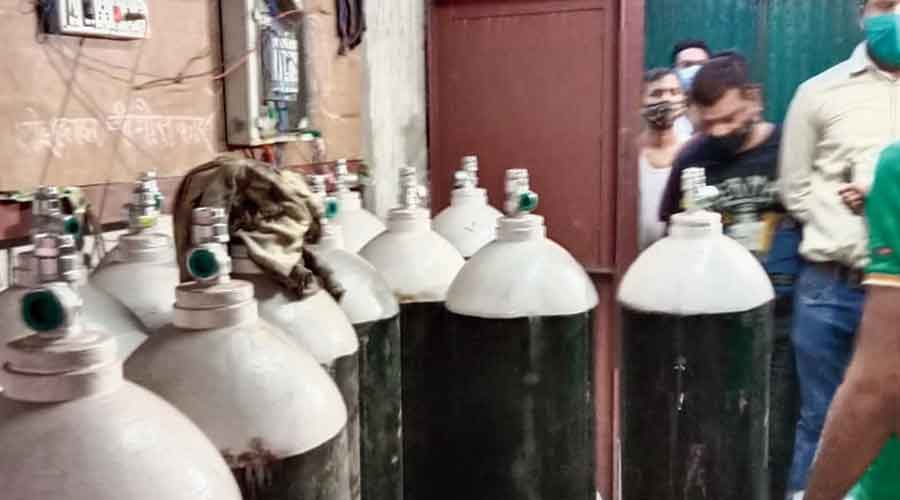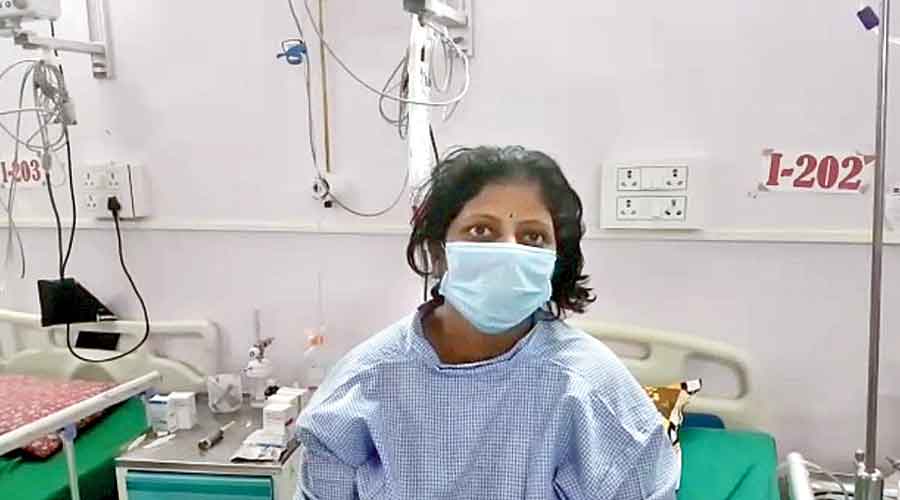Senior doctors guiding India’s Covid-19 response on Monday cautioned against what they view as panic-driven actions by some people to seek hospital beds, procure oxygen cylinders or buy vials of the antiviral remdesivir for patients who do not need them.
Two doctors, both members of the national Covid-19 task force, underlined that 85 to 90 per cent of Covid-19 patients do not need hospital care and that a scramble for either beds or oxygen cylinders could deny these resources to patients who genuinely need them.
“Some people think that if they keep oxygen at home and take oxygen early in the infection, they won’t need oxygen later. This is a false notion,” said Randeep Guleria, director of the All India Institute of Medical Sciences, New Delhi.
Oxygen has emerged as a key treatment for Covid-19 but its misuse is a concern, Guleria said.
“If oxygen saturation is 94 or 95, there is no reason to raise it to 98 or 99. This would be a misuse of oxygen that could be used in patients whose levels are below 90.”
The standard treatment protocols recommend that patients with oxygen levels between 93 and 90 and respiratory rates of 24 or more breaths per minute should be admitted to hospital and those with oxygen levels below 90 or respiratory rates of 30 or higher should be under critical care.
“These protocols should be adopted by both — by doctors and by the public,” said Vinod Paul, the chair of the task force and a member of Niti Aayog, the government’s apex think tank.
“Please don’t panic; this disease is serious in only a small proportion of individuals.”
Critical care medicine experts have also warned that the small proportions of Covid-19 patients who develop moderate or severe disease and whose oxygen levels fall below 90 require other medical interventions, too, such as steroid therapy and blood tests for inflammatory markers.
Patients whose oxygen levels have dropped below 90 should not rely only on home-procured oxygen cylinders but need to urgently go to a hospital, said Priyadarshi Kumar, a critical care and respiratory medicine specialist in Noida.
“The amount of oxygen in a cylinder might get exhausted quickly. A 60-litre oxygen cylinder would last only about 20 minutes for a patient who requires 3 litres of oxygen a minute,” Kumar said.
While some patients may benefit from mask-based oxygen, he said, others may require high-flow oxygen or non-invasive or invasive ventilation.
The concerns about oxygen misuse come amid moves by individuals and housing societies in some hard-hit cities to procure and store oxygen cylinders or oxygen concentrators as standby devices.
Guleria and Paul also cautioned against efforts to hoard or even consume the antiviral remdesivir which, ideally should be available only to hospitals but is believed to be circulating in the market. Guleria said early consumption of the medication would not prevent severe disease.
“Remdesivir is not a magic bullet, its benefits have not been well-established,” he said. The standard protocols recommend remdesivir only in patients who are within 10 days of their onset of symptoms.
Masks at home
Paul, underlining the need for personal precautions, said people should consider wearing masks even at home to reduce the risk of transmission. “Even within the family, please wear masks…. It appears this virus (variant) is more transmissible,” he said.
Anecdotal accounts from doctors treating Covid-19 patients suggest that more members per households with positive cases are likely to become infected during the current wave than were during the first wave last year.











